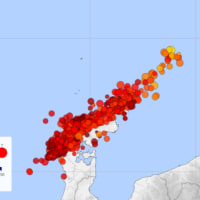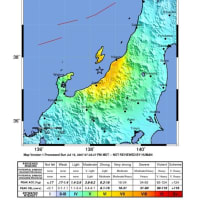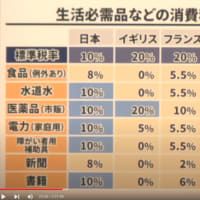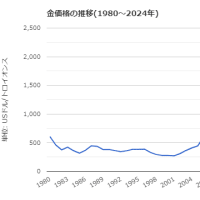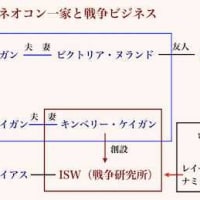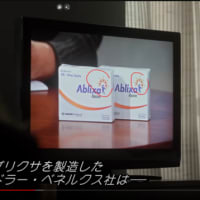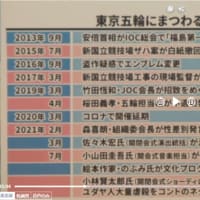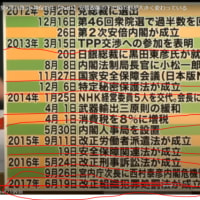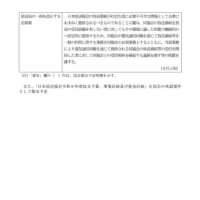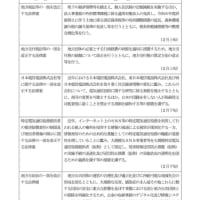Anglo-Saxon Ambitions Continuing from Meiji Restoration Behind U.S.-Japan Summit
Prime Minister Fumio Kishida met with U.S. President Joe Biden on April 10 to hammer out a "national transformation plan"-like arrangement that includes military, biotechnology, and education. The content of the plan is to strengthen the system of domination of Japan by the U.S. ruling class, and on the military front, it is regarded worldwide as the most significant buildup since the 1960s. In the past, this would have been an event that would have been met with massive protests. It could be said to be the culmination of Japan's preparations for war in accordance with the wishes of the United States.
It is said that orders from the U.S. to Japan were conveyed through the "Japan-U.S. Joint Commission," which was established under the Status of Forces Agreement concluded in 1960, and that the content of the discussions (communication) is secret. The Japanese representative is said to be the Director General of the North American Bureau of the Ministry of Foreign Affairs, and the U.S. representative is said to be the Deputy Commander of the U.S. Forces Command in Japan. Japan can be said to be under U.S. military occupation to this day.
Japan signed the "Treaty of Peace with Japan" at the San Francisco Opera House on September 8, 1951, and the Japan-U.S. Security Treaty at the Presidio on the same day, allowing only U.S. forces to continue occupying Japan. A week earlier, at the same Presidio, the US, Australia, and New Zealand had signed the ANZUS Treaty. The Security Treaty was revised in 1960 and a Status of Forces Agreement was also established. So Kishida and Biden have implemented major revisions since then.
However, the postwar Japan's posture had been defined long before that. The path was set by the "Japan Lobby," centering on the American Council on Japan (ACJ), with the Wall Street giant behind it. Its central figure, Joseph Grew, a female cousin married to JP Morgan's general manager, John Pierpont Morgan, Jr. had served as ambassador to Japan since 1932. Grue's wife, Alice Perry, also has close ties to Japan. Her great-grandfather was the brother of Commodore Matthew Perry, who came to Japan on the "Black Ships" at the end of the Edo period. Because of this, Joseph Grew had connections to the Japanese royalty and nobility.
The Great Kanto Earthquake of September 1, 1923 was the catalyst for these connections to become very influential in Japan. More than 3.4 million people were affected by the disaster, with more than 105,000 dead or missing, and total damages ranging from 5.5 billion to 10 billion yen.
To raise funds for reconstruction, the Japanese government decided to issue foreign bonds and negotiated with JP Morgan, a Wall Street-based financial giant. The Japanese with the deepest ties to this giant financial institution was Junnosuke Inoue. Inoue became friends with JP Morgan in 1920 when they negotiated a loan to China. (NHK Reporting Team, Nihon no Sentaku〈6〉The Tragedy of Nippon, a Small Financial Nation, Kadokawa Shoten, 1995)
Japan launched the Russo-Japanese War with a surprise attack on Incheon and Port Arthur in February 1904, but it was Jacob Schiff who financed the war effort for Japan. The man who financed the war was Jacob Schiff, who ran the Rothschild-affiliated Kuhn Loeb. He loaned Japan about $200 million.
American and British private powers were active in Japan before and after the Meiji Restoration. Thomas Glover and William Keswick, who were agents of Jardine Matheson, came to Japan in 1859 as their pawns. Keswick's grandmother, based in Yokohama, was the sister of William Jardine, one of the founders of the company.
Jardine Matheson was in the business of transporting Chinese tea and silk to England and bringing opium from India to China, but most of his profits came from the opium trade and he was effectively a drug dealer.
In 1859, when Glover and Keswick arrived in Japan, British Consul General Rutherford Allcock decided to send five young men from Choshu to study in England. The five were Kaoru Inoue, Kinsuke Endo, Yozo Yamao, Shunsuke Ito (Hirofumi), and Yakichi Nomura (Masaru Inoue), who were to leave for London in 1863, and the ship was arranged by none other than Jardine Matheson.
Diplomats such as Ernest Satow of England and Charles DeLong and Charles LeJeandre of the U.S. urged the Meiji government to invade Asia.
In July 1871, the new government abolished the feudal domains of Japan, but in October of that year, the Japanese government protested to Qing because fishermen from Miyako Island had drifted to Taiwan and some of them had been killed. At this point, Ryukyu was an independent country, and it was strange for Japan to protest.
Perhaps realizing this, the Meiji government crushed Ryukyu Kingdom in 1872 and tagged the King of Ryukyu as the King of Ryukyu Domain. If the Meiji government had wanted Ryukyu Kingdom to be or become Japanese territory, the order would have been to establish a Ryukyu domain and then abolish the domain. It would have created a clan that was supposed to have been abolished and tried to create the form that Ryukyu was a Japanese territory. Then, in 1874, the Meiji government sent troops to Taiwan.
In 1872, after the Ryukyu Kingdom was crushed, Charles LeJeandre, a French-American and consul in Xiamen, came to Japan. The diplomat stopped in Japan on his way back from Taiwan, where he met Charles DeLong, who was serving as U.S. minister to Japan, who explained to LeJeandre that he was urging the Japanese government to invade Taiwan. (James Bradley, "The Imperial Cruise," Little, Brown and Company, 2009)
DeLong recommended that the Japanese Ministry of Foreign Affairs hire Lujandre as an advisor, which was accepted, but Lujandre resigned as U.S. consul in December 1872, and as advisor, he recommended to Foreign Minister Taneomi Soejima that the Japanese government deploy troops to Taiwan. The American military advisor accompanied him on the deployment. (see above)
After leaving his position as advisor to the Ministry of Foreign Affairs, LeJandre stayed in Japan and left Japan in 1890. From that year to 1999, he served as an advisor to King Gojong of Yi Dynasty Korea. At the time, there was a conflict in Korea between Heungseon Dae-won-gun (father of King Gojong) and Min-pi (Queen Min).
Then, in 1894, the Kabo Peasants' War (Donggak-do Rebellion) broke out on the Korean peninsula, shaking Minh's regime. Seeing this, the Japanese government dispatched troops under the guise of "protection of Japanese nationals," and at the request of the Chosun government, the Qing also went to war, leading to the Sino-Japanese War. After winning the war, Japan signed the Treaty of Shimonoseki in April 1895, marking the first step toward invading the continent.
In the same year, Japanese Minister Miura Goro and his men assassinated Minhwa, who was expected to move closer to Russia after the defeat of the Qing. Japanese officials and "continental ronin" slaughtered three women, including Minhang. Although the Miura officials who participated in the assassination were acquitted due to "insufficient evidence," this verdict spread the impression of the Japanese government's involvement in the assassination to the rest of the world. Miura subsequently held the important positions of advisor to the Privy Council and court counselor.
Since the Meiji Restoration, there have been people in Japan who became Anglo-Saxon stooges and seized power and financial resources. These people established the Emperor's bureaucratic system. From that time on, the Japanese archipelago became a base for Anglo-Saxon invasion of the continent, and the Japanese became mercenaries. The meeting between Kishida and Biden may have been backed by the ambition to invade China, but it does not seem that the U.S. has the power to do so.
By automatic translation
日本語サイト 桜井ジャーナル記事
https://plaza.rakuten.co.jp/condor33/diary/202404130000/
棚上げ論による実効支配というのがある。
もし中国とアメリカが協議して、日本を棚上げするとアメリカ(イギリス)による軍隊を置いた80年くらいの実行支配、経済支配から150年くらいになるのかな?










